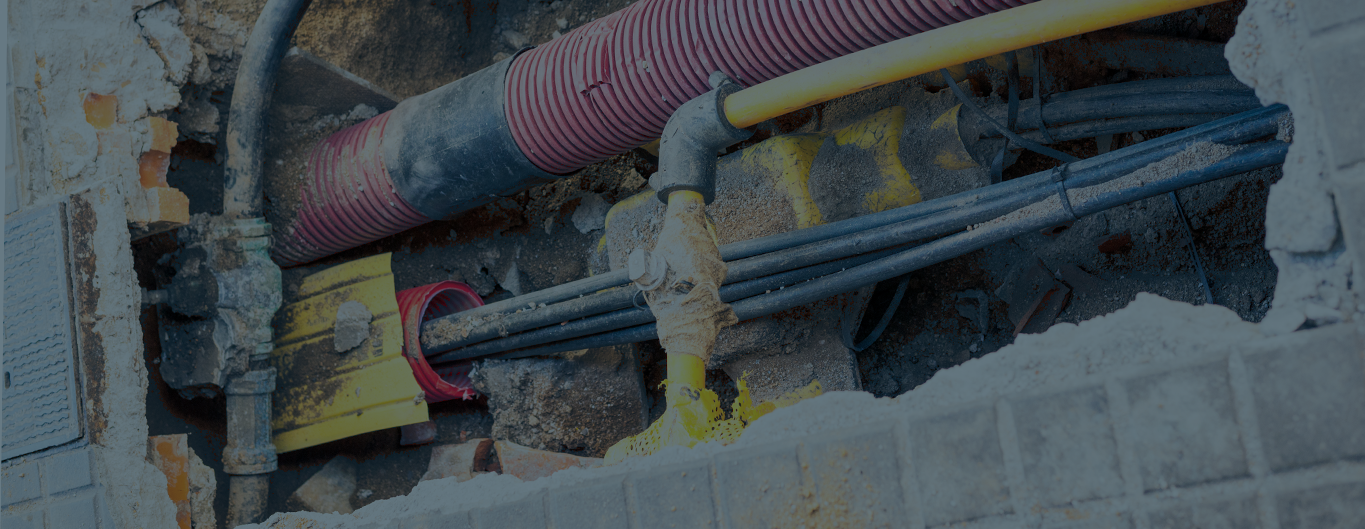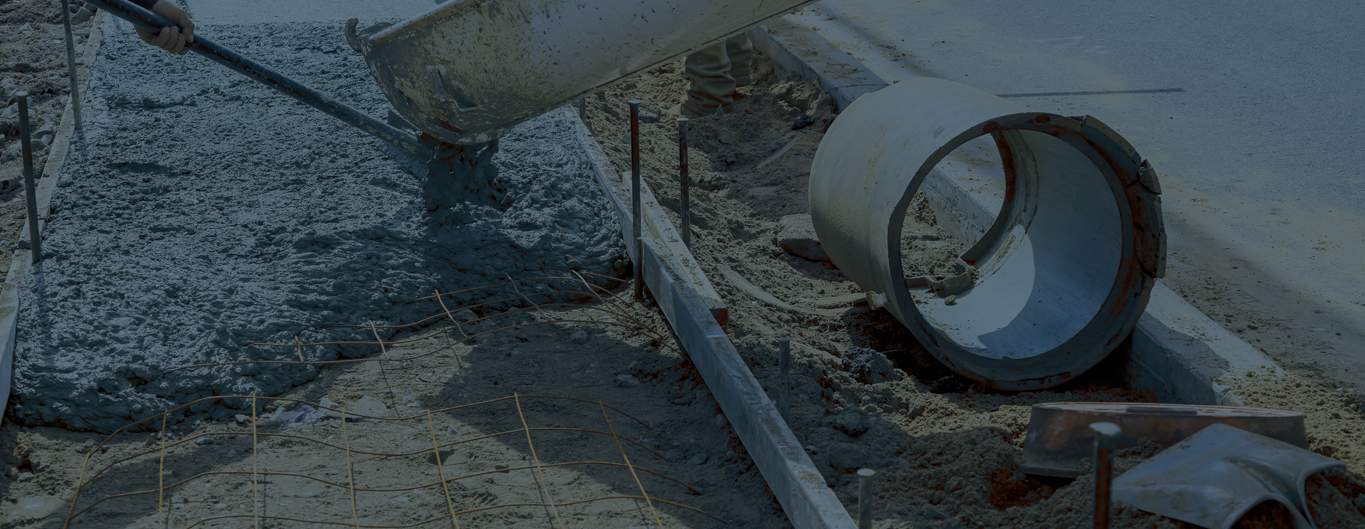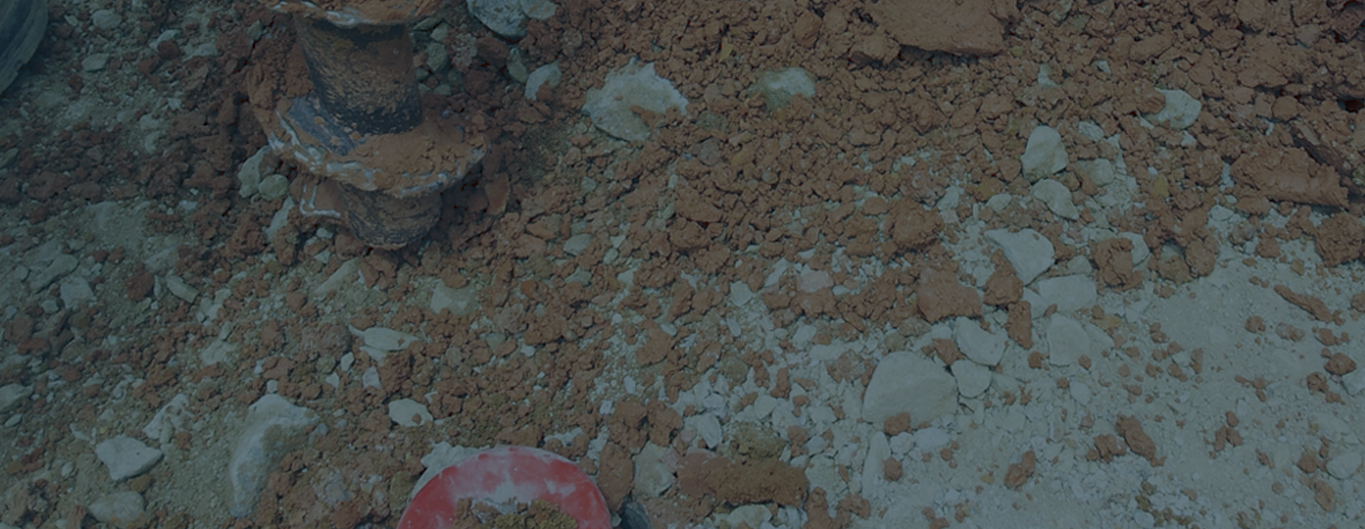Engineering projects rely on stable foundations to support all types of structures.
Yet unlike concrete, steel and other man-made construction materials, the properties of soil and rock vary at each site. These natural materials are barely visible until excavation or site-specific soil investigations begin. So getting an accurate report of their properties is essential—to manage risk and avoid major defects.
In this self-paced course, you'll gain an understanding of how geotechnical engineers scope, investigate and assess soil parameters, and report on their findings. You'll learn about:
- soil and rock properties, and how they differ to man-made materials such as steel or concrete
- common site investigation and laboratory testing methods to assess soil and rock properties
- key differences in the performance of different soil types in an engineering context
Using practical examples, you'll gain an overview of:
- how the bearing capacity of the ground is assessed
- how slope stability is assessed
- how groundwater can influence soil behaviour
- how to identify important geotechnical design parameters
After completing this course, you'll have developed a basic understanding on the different soil and rock types and their origins in the field. You'll also understand why detailed, site-specific ground investigations and soil and rock tests are essential for safe and sustainable geotechnical engineering designs.
*1% credit card surcharge applies.
Any questions?
Contact us
1 January - 31 December
Once you register, you will be provided with access to the EEA Online platform to start this course.
We can arrange bulk registration packages for corporate clients.
This includes the option to set up an access code for your organisation, allowing your team to register for courses on demand, avoiding the need to request individual Purchase Orders.
We can also customise this course to align to your business objectives or L&D needs.
Find out how we can help you and your team by completing an enquiry form or calling us on +61 3 9321 1700.
For Individuals
8 Hours, self-paced
All learning may contribute to Engineers Australia’s Continuing Professional Development (CPD) hours.
1 January - 31 December
Once you register, you will be provided with access to the EEA Online platform to start this course.
For Business
We can arrange bulk registration packages for corporate clients.
This includes the option to set up an access code for your organisation, allowing your team to register for courses on demand, avoiding the need to request individual Purchase Orders.
We can also customise this course to align to your business objectives or L&D needs.
Find out how we can help you and your team by completing an enquiry form or calling us on +61 3 9321 1700.
- The most common soil and rock properties for typical applications in geotechnical engineering
- Geotechnical engineering principles and their comparison with other civil engineering disciplines
- The key differences between fine-grained and coarse-grained soils
- Common site investigation methods for soil and rock sampling and on site strength estimation
- Common laboratory testing methods to assess engineering properties of soil and rock
- The general purpose and different types of geotechnical reporting
- Common applications in geotechnical engineering for general construction and civil engineering projects
Is this course for you?
This course suits civil engineers, structural engineers and construction professionals with limited experience in geotechnical engineering. It is also a useful refresher for more experienced professionals.
The course may also be of interest to those who work with soil and rock materials including:
- builders
- architects
- project managers
- quantity surveyors
- QA professionals
- commercial managers
- academics
- students
There are no prerequisites for this course.
Topics we'll cover
- Introduction to geotechnical engineering
- Soil and rock
- Geotechnical engineering principles
- Soil investigation methods
- Soil property assessment in the laboratory
- Geotechnical reporting
- Selected geotechnical engineering applications
- Principles of bearing capacity of soils
- Slope stability assessments
Dr Martin Larisch is a Fellow with Engineers Australia and a Principal Geotechnical Engineer with over 25 years of international experience in the piling and ground engineering sector. He has worked in various technical and operational leadership roles for some of the largest specialist piling and ground improvement contractors and design firms in Australia, New Zealand, and Germany.
Martin has significant experience in the design, construction and verification of piled foundations, retaining walls and ground improvement schemes for infrastructure, marine and building projects. He was also affiliated with The University of Queensland as an Adjunct Associate Professor in the Geotechnical Engineering Centre from 2014 to 2021
This course is delivered through EEA Online, our digital learning platform.
You'll learn using a mix of practical case studies, quizzes and reading, audio and video materials. You'll also apply your knowledge in practice with a variety of assessment tasks and learning checks.
It will take approximately eight hours to complete. As it is self-paced, you can start anytime and save your progress as you finish each module.
Once you register for the course, you have 90 days to complete it.
Upon successful completion of the course, you will receive a digital badge as evidence of your achievement. Learn more about Engineering Education Australia’s digital badges including how to claim and share on our Frequently asked questions page.
This also counts towards the number of Engineers Australia Continuing Professional Development (CPD) hours you can claim.
EEA Online access
EEA Online is powered by leading Learning Management System (LMS), Canvas by Instructure.
Once you register for a course, you will be provided with access to the EEA Online Canvas platform to start this course.
If you are registering for your first EEA Online course, you will receive an email from [email protected] inviting you to set up your EEA Online account.
Supported Browsers
For best performance, please use the most recent major release of Chrome, Firefox, Edge, or Safari. Read more about the current supported browsers on Canvas:
Mobile access
EEA Online is mobile friendly, however desktop is preferred. Please read through the following information on mobile access via Canvas:
It is a good simple refresher for geotechnical engineers and I can see how it would be very beneficial for people with no geotechnical experience.
The geotechnical reporting was the best part as this is not covered in university degrees, unlike the rest of the topics.
It was a great course. It was very informative and clearly set out. A good recap and skill booster.


